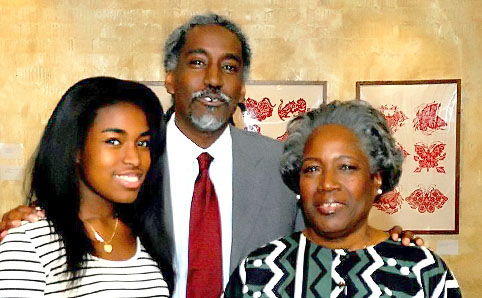Latest News Archive
Please select Category, Year, and then Month to display items
30 October 2018
|
Story Rulanzen Martin
|
Photo Peet van Aardt
 Some of the student writers who contributed to the anthology that tells their stories in Sesotho, isiXhosa, isiZulu, English and Afrikaans.
Some of the student writers who contributed to the anthology that tells their stories in Sesotho, isiXhosa, isiZulu, English and Afrikaans.
How do you transform the higher education curriculum? You involve the exact people the curriculum is intended for. The book, Initiative for Creative African Narratives (iCAN,) illustrates how decolonisation can be achieved through literature for students by students.
iCAN is an initiative by the Centre for Teaching and Learning (CTL) at the University of the Free State (UFS) to mentor students in creative and narrative writing. Under the mentorship of Dr Peet van Aardt, project coordinator, and Ace Moloi, author and UFS alumnus, iCAN Volume 1 was recently launched with 47 short stories written by UFS students.
“The project is a response from the centre for the ever-increasing need for decolonised curricula, steeped in the local cultural perspective of ubuntu,” said Dr Van Aardt.
“This book is an example for how decolonisation can be implemented,” said Prof Francois Stydrom, Senior Director of CTL. The overall aim of the iCAN project is to have the content that materialised from it to be included in the curriculum of first-year students at UFS in the near future.
Book provides multiple voices
Starting in May 2018, CTL presented a series of creative writing workshops on all three of the UFS campuses. “It’s a medium that allows a diverse range of students to express their views and develop their voices as writers,” said Prof Strydom.
It is a form of empowerment, to pass the baton to students to improve the UFS curriculum by writing and publishing their own stories, thereby contributing to larger bodies of knowledge through their lived experiences.
“I believe we as a university need to enable students so that they move away from just being users to becoming contributors to the curriculum,” Dr van Aardt concluded.
US professor makes the case for public scholarship
2011-08-17
|

|
| The Eatman family from the left: Jasmin Eatman, Prof. Timothy Eatman and Mrs. Lorraine Eatman |
The university of the 21st century should not be an ivory tower; rather it should work with communities to co-create things of public value. This was one of the observations made by visiting US Prof. Timothy Eatman. He delivered a public lecture on the topic Public Scholarship and the democratisation of knowledge in the engaged university at the University of the Free State (UFS) on Monday, 15 August 2011. Prof. Eatman challenged people at the lecture to think about richer ways of thinking about engaged public scholarship and said they need to prepare for a new citizenry of academia.
Prof. Eatman, an assistant professor of Higher Education at Syracuse University in the United States, said that knowledge was revealed in diverse ways and advised institutions of higher education to demonstrate an increasing sensitivity to issues of relevance to public good. Prof. Eatman said the present era calls for the development of a more sophisticated understanding of knowledge creation.
Prof. Eatman, who is visiting our country for the first time, brought along his mother, Lorraine, and daughter, Jasmin, who performed a contemporary dance during the event. The family had been in Bloemfontein for the past week or so and Eatman expressed his gratitude to staff and people of Bloemfontein, saying he can deliver personal testimony to the beauty of the Free State.